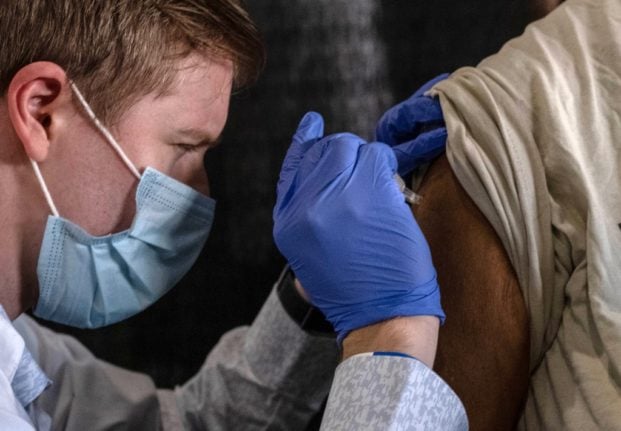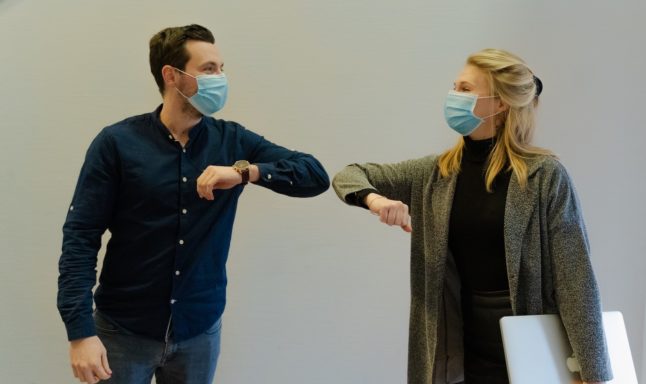With Switzerland’s vaccine timetable ahead of some other European countries, some foreigners have tried to come to Switzerland to get vaccinated.
The only foreign residents allowed to get their shots in Switzerland are cross-border employees who have Swiss health insurance.
Therefore, unless you have Swiss health insurance, you are ineligible to be vaccinated in Switzerland.
READ MORE: Reader question: Can cross-border workers get vaccinated in Switzerland?
Foreign healthcare workers who are in contact with patients in Swiss hospitals can also get their vaccine in Switzerland, even without Swiss insurance.
Early in the pandemic, some foreigners came in groups to get their shots in Geneva.
The cantonal vaccine platform can’t detect fraudulent information, so some ineligible foreigners get through, though many are turned away when they arrive for their appointment and have to show their ID and proof of Swiss insurance.
Paoliello said that a busload of people from Italy was turned away from one of the canton’s vaccination centres before they could get their shots.
“Vaccination tourism is not acceptable”, Paoliello said in an interview.
But some fraudsters do fall between the cracks.
For instance, two people from Italy whose children are based in Geneva, managed to get their vaccines.
“They should have been turned away”, Paoliello noted, adding that cheaters “will be billed for the vaccine retroactively”.
The shot is free for Swiss residents, cross-border workers, and qualifying health personnel.
What about vaccinating people from other cantons?
The Federal Office of Public Health (FOPH) says that residents “are free to get vaccinated wherever we want. The vaccination is independent of the place of residence but if possible the two doses should be administered at the same place so that the second dose can be reserved”.
However, in reality this guideline is often not followed, with patients coming from other cantons being told they should get inoculated in their place of residence.
The reason is that vaccine doses are currently in short supply in Switzerland due to delivery delays.
As each canton receives the number of doses in proportion to their population, local health authorities are reluctant to vaccinate those coming from outside their territory.
Paoliello noted that a number of people “engage in inter-cantonal vaccine tourism,” registering in two or more cantons simultaneously to boost their chances of getting the shot.
“We are at the limit, which calls for the individual and moral responsibility”, he said.
READ MORE: Switzerland lines up fourth Covid-19 vaccine to help tackle pandemic



 Please whitelist us to continue reading.
Please whitelist us to continue reading.
Member comments